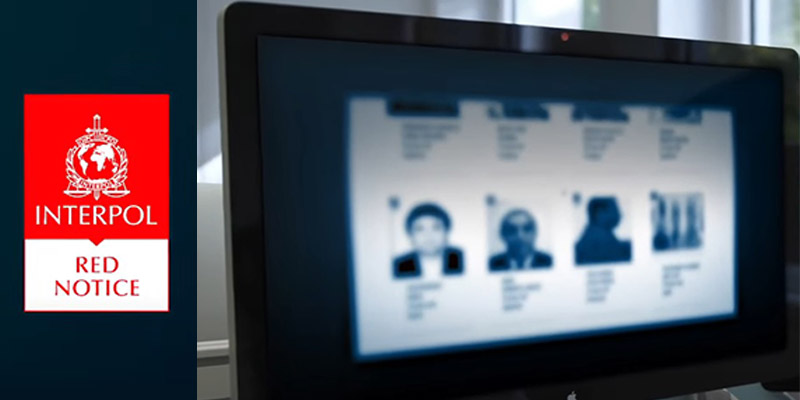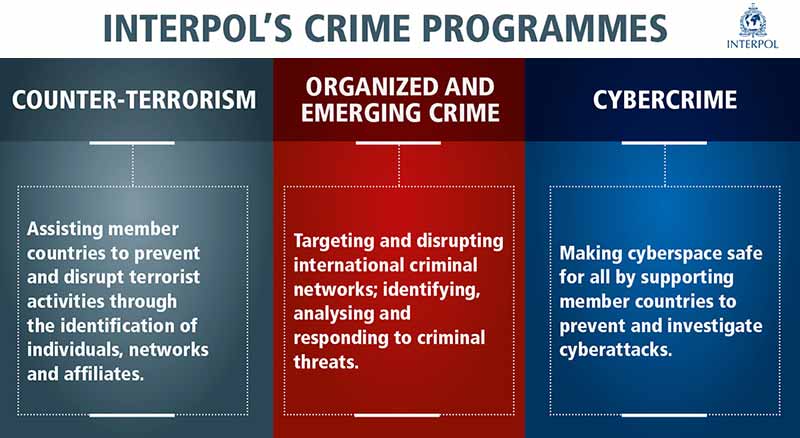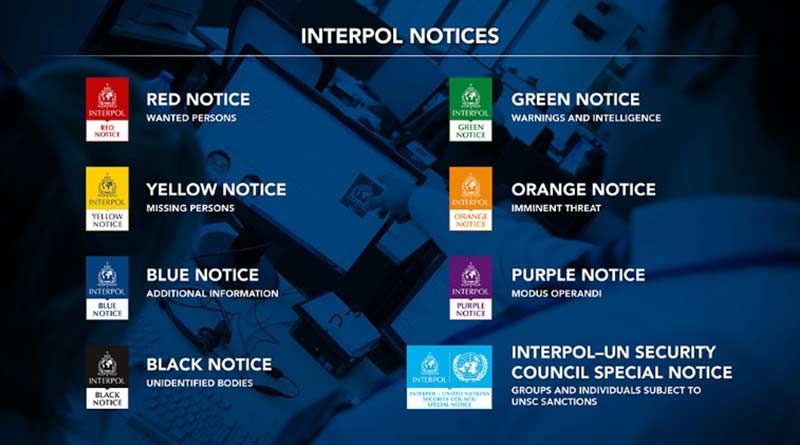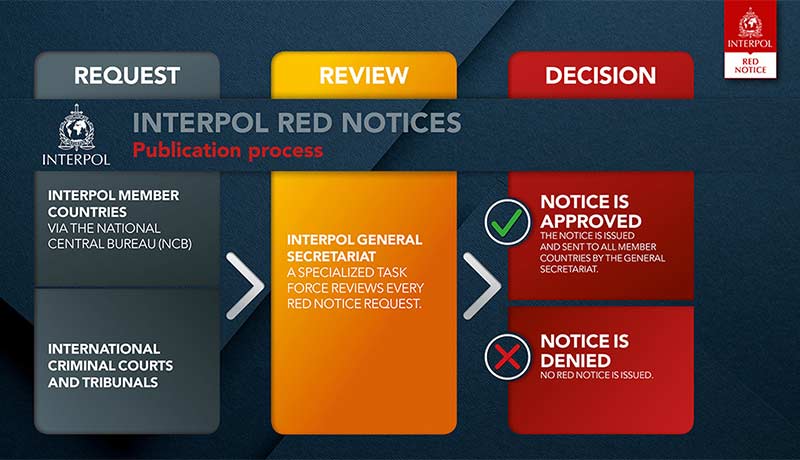- India
- Mar 21
What is Interpol’s Red Notice?
The name of fugitive diamantaire Mehul Choksi, wanted in a Rs 13,000-crore scam in the Punjab National Bank, is reported to have been removed from the Interpol database of Red Notices.
The Interpol had issued the Red Notice against Choksi in 2018, nearly 10 months after he fled from India in January that year to take refuge in Antigua and Barbuda, where he had taken citizenship.
What is Interpol?
• The International Criminal Police Organisation (Interpol) is an inter-governmental organisation that has 195 member countries.
• It began as the International Criminal Police Commission in 1923, and became the International Criminal Police Organisation in 1956.
• India became a member country on October 15, 1949.
• Interpol enables countries to share and access data on crimes and criminals and offer a range of technical and operational support.
• The General Secretariat coordinates its day-to-day activities to fight a range of crimes. Run by the secretary general, it is staffed by both police and civilians and comprises a headquarters in Lyon and several satellite offices in different regions.
• The General Secretariat provides a range of expertise and services to member countries. Interpol manages 19 police databases with information on crimes and criminals (from names and fingerprints to stolen passports), accessible in real time to countries.
• It supports national efforts in combating crimes across three global areas — terrorism, cybercrime and organised crime.
• In each country, an Interpol National Central Bureau (NCB) provides the central point of contact for the General Secretariat and other NCBs. An NCB is run by national police officials and usually sits in the government ministry responsible for policing.
• In India, the Central Bureau of Investigation (CBI) coordinates investigations on behalf of Interpol member countries.
Interpol notice
• Interpol notices are international requests for cooperation or alerts allowing police in member-countries to share critical crime-related information.
• Notices are published by the General Secretariat at the request of a national central bureau and are made available to all member-countries.
• Most notices are for police use only and are not made available to the public. However, in some cases, for example to alert the public, or to request help from the public, an extract of the notice will be published online.
What are the different types of notices?
• Red Notice: It is a kind of international arrest warrant for fugitives where Interpol requests its member-countries to arrest or detain them.
• Yellow Notice: To help locate missing persons, often minors, or to help identify persons who are unable to identify themselves.
• Blue Notice: It is issued to collect additional information from its member-countries about a person’s identity, location or activities in relation to a crime.
• Black Notice: To seek information on unidentified bodies.
• Green Notice: To provide warning about a person’s criminal activities, where the person is considered to be a possible threat to public safety.
• Orange Notice: To warn of an event, a person, an object or a process representing a serious and imminent threat to public safety.
• Purple Notice: To seek or provide information on modus operandi, objects, devices and concealment methods used by criminals.
• Interpol-UN Security Council Special Notice: Issued for groups and individuals who are the targets of UN Security Council Sanctions Committees.
Procedure to issue Red Notice
• The Red Notice is the highest form of alert issued by the Interpol to law enforcement agencies worldwide to locate and provisionally arrest a person pending extradition, surrender, or similar legal action.
• A Red Notice is a request to law enforcement worldwide to locate and provisionally arrest a person pending extradition, surrender, or similar legal action.
• It is based on an arrest warrant or court order issued by the judicial authorities in the requesting country. Member countries apply their own laws in deciding whether to arrest a person.
• All Red Notice requests are reviewed for compliance with Interpol’s Rules by Notices and Diffusions Task Force, a specialised multilingual and multidisciplinary task force comprising lawyers, police officers and operational specialists.
• When assessing the compliance of a notice, the task force considers all of the information available to it at the time. For example, information from the National Central Bureau requesting the Notice, other member countries and open sources.
• Whenever new and relevant information is brought to the attention of the General Secretariat after a Notice or Wanted Persons Diffusion has been published, the task force re-examines the case.
• If a notice or diffusion is assessed as no longer being in compliance with Interpol’s Constitution and rules, it is cancelled. All member countries are informed of the decision and requested to remove any information from national databases.
Request for Red Notice will be rejected if:
• It is of a predominantly political, military, religious or racial character.
• It is for a refugee who has fled that country and fears persecution.
• It is a failure to satisfy minimum penalty requirements.
• The offence described in the Red Notice falls under one of the categories of excluded offences, like prostitution or bigamy.
Manorama Yearbook app is now available on Google Play Store and iOS App Store






